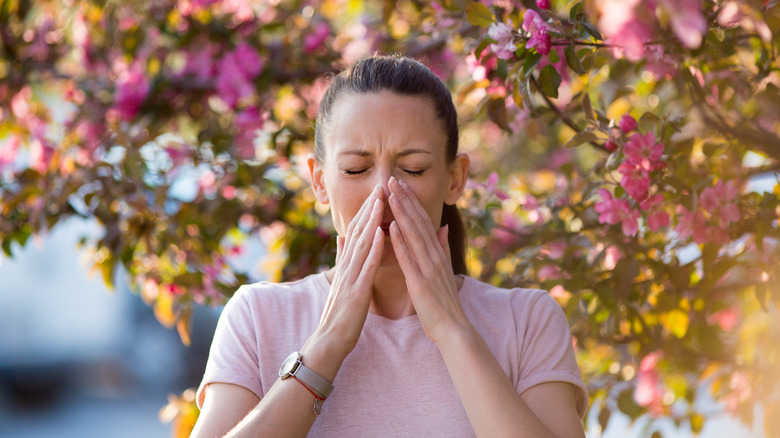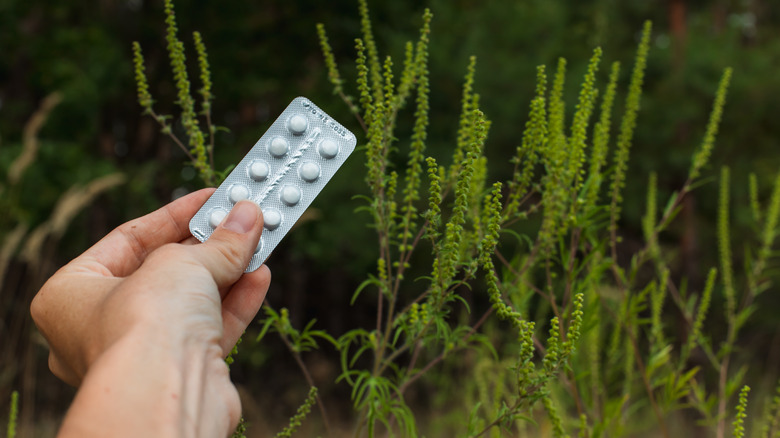The Best Time Of Day To Take Allergy Medication
Seasonal allergies can wreak havoc on your sinuses. Before you know it, your nose is constantly running and you can't stop yourself from sneezing. That's why timing is everything when it comes to taking allergy medications (via Well+Good). In fact, taking antihistamines at the right time of day can make a world of a difference and can even maximize the effectiveness of the medication. But when exactly is the best time to take them? As it turns out, you're better off taking antihistamines at night.
"Antihistamines take at least 30 minutes to work, and the newer, long-acting ones will last you 24 hours, so you'll be covered until the next day. They work best when they're already in your system, so the night before is most efficacious," Dr. Purvi Parikh, an allergist and immunologist with the Allergy & Asthma Network, told Well+Good. "Since some antihistamines make you drowsy, it's actually best to take them before bedtime."
How often should you take antihistamines?
In addition to relieving allergy symptoms as they come up, antihistamines are also great at stopping symptoms in their tracks and preventing them from occurring in the first place (via GoodRx). That's why, for best use, you should take antihistamines every day during allergy season. According to the American Academy of Otolaryngology-Head and Neck Surgery (AAO-HNS), taking antihistamines on a daily basis can help optimize their benefits and effects. But is this safe?
For the most part, yes. "Taken in the recommended doses, antihistamines can be taken daily, but patients should make sure they do not interact with their other medications," Dr. Sandra Lin, a professor and vice director of the Otolaryngology-Head & Neck Surgery at Johns Hopkins School of Medicine, told SingleCare. You just need to make sure you choose the right medication. First-generation antihistamines like Benadryl tend to have more potential side effects and interactions with medications, so they're not typically recommended for daily or long-term use. However, second-generation antihistamines like Zyrtec are much safer for daily use and tend to be more effective over time.


